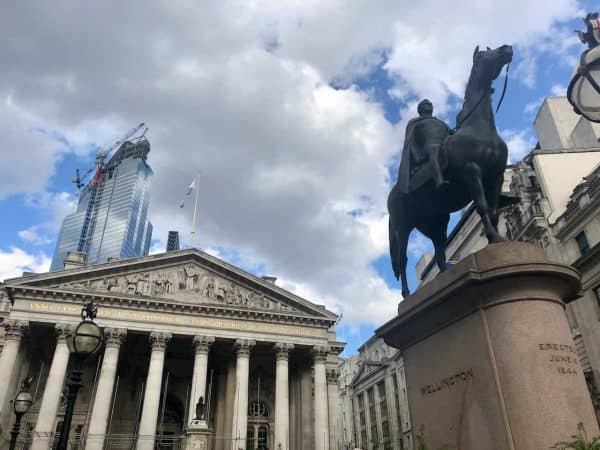Given its established history, the London Stock Exchange (LSE) was due for a major update.
The LSE was established back in 1698 as simply a list of prices posted to the wall of a back-alley coffee house. Then about 100 years later, it began hosting around 75% of the global stock market.
By the start of the 21st century, the London Stock Exchange was being supported by a large number of mainframes. Recently (on March 15, 2022), the exchange confirmed its upcoming transformation: into an exchange platform for private firms and listed businesses as well.
This latest bourse will be established with assistance from Floww, which is a database for private companies and VC funds in which the LSE’s parent firm had acquired a minority stake.
Floww was specifically built to link up startups with various investors by allowing them to share their commercial data in a standard and verifiable format.
The LSE plans to take that particular model even further. The plan is to turn the database into a platform through which firms may secure funding by selling off their equity stakes to VC funds. After this, it will be adding a secondary marketplace where business entities and/or investors are able to trade the outstanding shares—which should help startups or early-stage firms with attracting more investors.
Murray Roos, Head of Capital Markets at the LSE’s parent firm, would like it to be a step towards establishing exchanges that are “indifferent” as to whether a firm is public or private.
Then private companies may be able to secure funding via a standardized exchange instead of through venture capital investments, which usually take place behind closed doors. Roos is thinking of a “funding continuum” that could ease private companies’ gradual move to public markets.
A trading platform for private equity might be suitable for investors as well, since the market for unlisted companies has become more relevant during the past few years.
Last year, private-equity investors entered deals valued at an all-time record $1.1 trillion internationally. Venture capital funds accounted for an additional $621 billion.
As reported by the Economist, the extensive reporting requirements for listed companies have resulted in firms remaining private for a significantly longer period of time (but still continuing to expand operations).
This approach then further postpones the moment when the majority of investors may take a position, thus preventing them from obtaining a more sizeable share of the revenue that prosperous firms usually generate.
In the beginning, the latest exchange will focus on institutional clients. However, the Economist reports that the main objective is to attain somewhat of a balance by enabling retail investors to gain exposure to high-potential opportunities.
Yet another goal of the collaboration is to focus on bringing back the UK’s stock market to the higher level of performance it once had. Other platforms also enable investors to trade the shares of unlisted firms, from the market for private shares offered via Nasdaq to UK-based crowdfunding sites like Seedrs and Crowdcube.
However, the LSE is reportedly the first platform to attempt to integrate this type of offering into its infrastructure consisting of data analytics, regulatory reporting, settlement as well as clearing.
The plan or goal is that the private companies joining the exchange may be more inclined to list in London at the time they decide to go public.
A major update and boost in activity is required. In 2005, the city of London had hosted around 20% of the global IPOs. Last year, that figure was only 4%. The loss back in 2016 of Arm Holdings, which is one of the UK’s most prominent tech firms, to SoftBank, a Japan-based investment firm, was a major setback.
The company, which maintains its head offices in Cambridge, is planning to re-enter the public markets. However, it now appears as if the firm firm will list on Nasdaq instead of the LSE.
Trying to revive the City’s previous level of activity is a task that the LSE might not be able to achieve on its own.
Its exchange in Paternoster Square is serving as simply the focal point of the UK’s stock market, but it is not the complete system.
There are also pension schemes and retail investors who are acquiring fewer shares in UK firms than ever before. In addition, there are not very many research analysts who are able to properly cover technology companies, and too many asset managers who are not really interested in growth equity.


